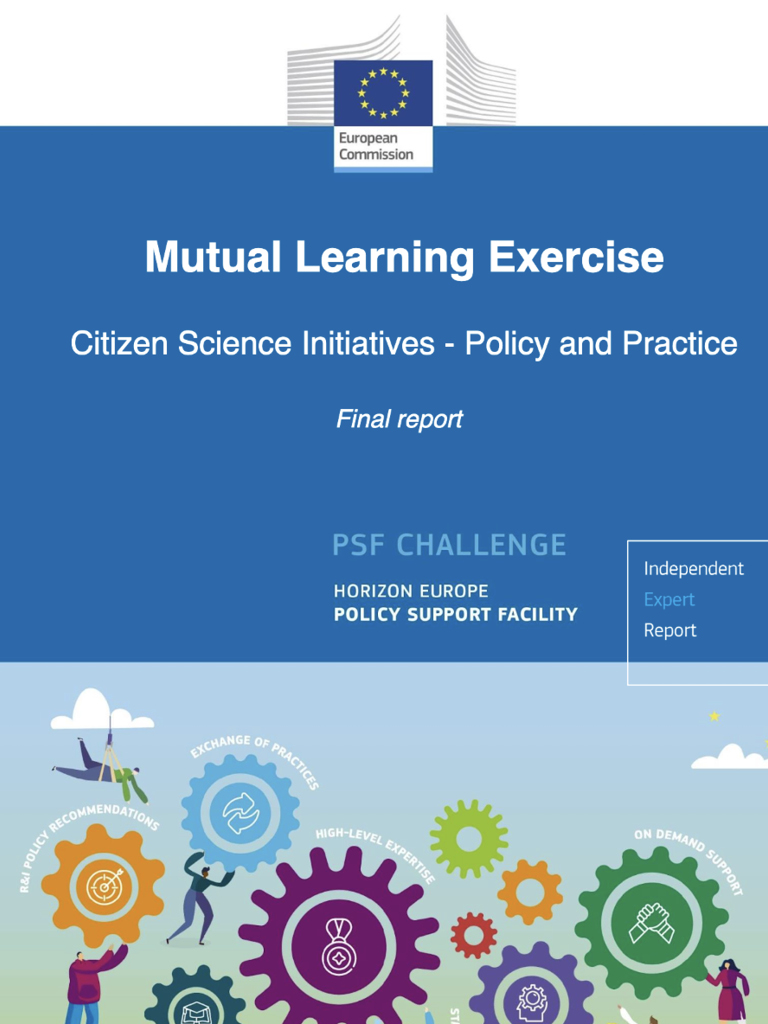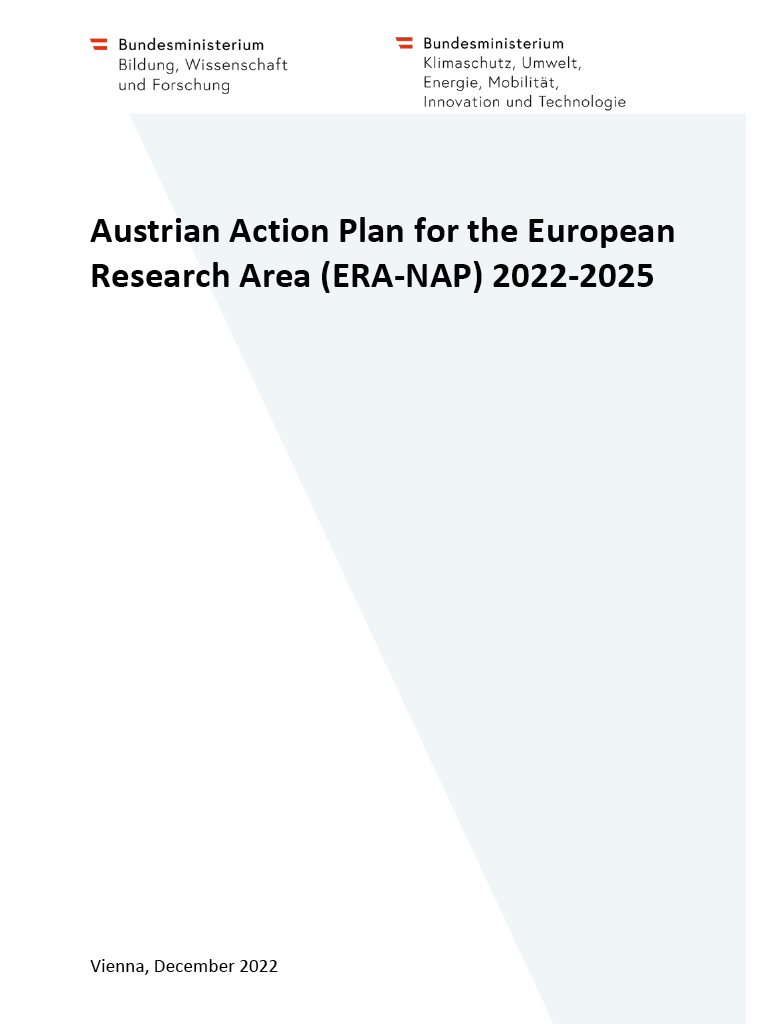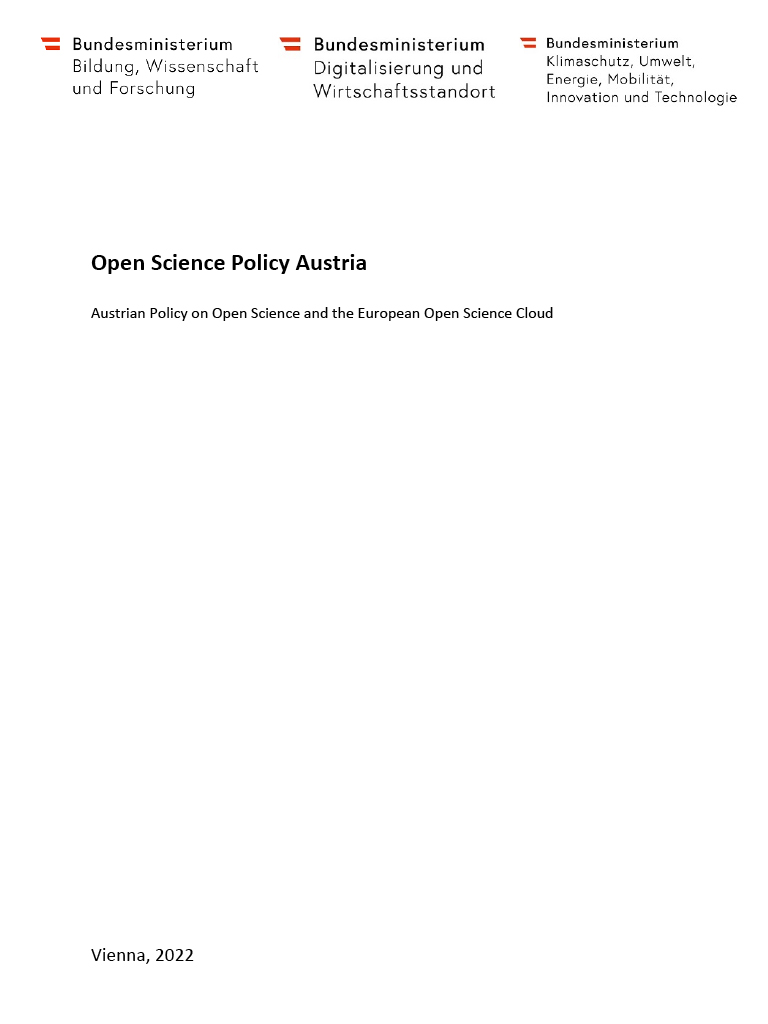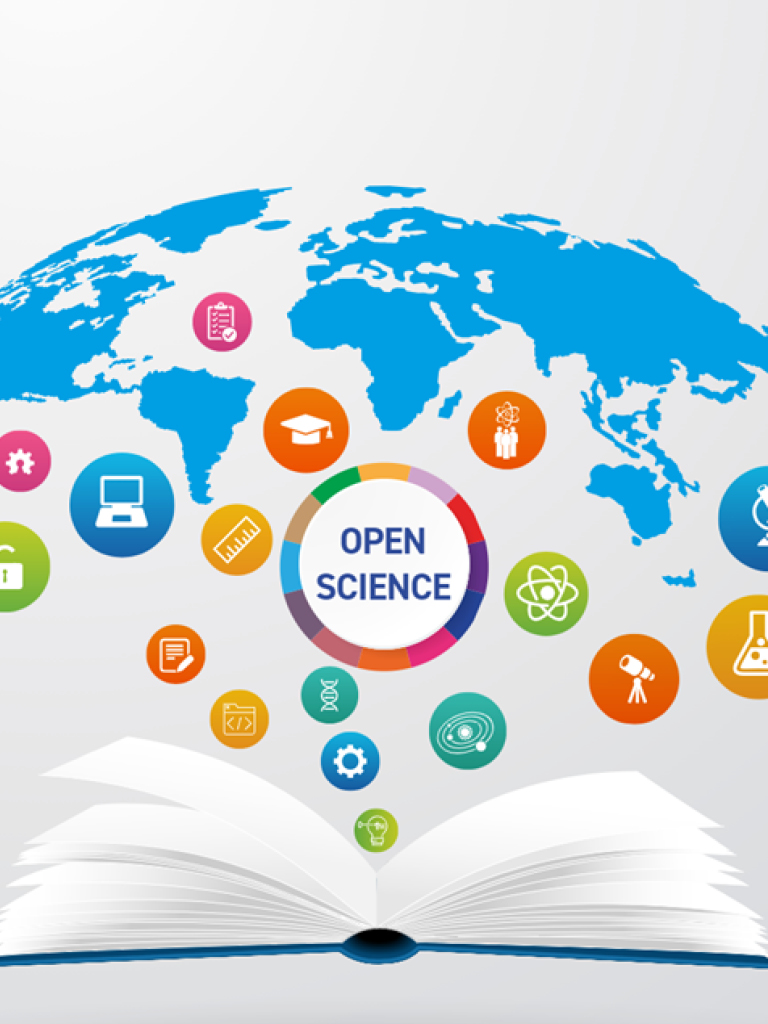
UNESCO recommendation on open science
In 2021, UNESCO adopted the first global normative instrument on open science, providing recommendations to define shared values and principles for Open Science, and identifies concrete measures on Open Access and Open Data, with proposals to bring citizens closer to science and commitments to facilitate the production and dissemination of scientific knowledge around the world.

Science Communication for Greater Research Impact – Science Europe
This statement aligns Science Europe member organisations around a vision, a series of principles, and framework actions to reinforce the collective capacity to communicate research more effectively and enhance communication of science to society.

Policy briefs and fact sheets
In a concise and easily accessible format, we summarize scientific knowledge related to current environmental management issues or policy procedures concerning the Baltic Sea. The briefs aim to enhance engagement and facilitate science-based decision-making.

Framework for courses in science communication
Science communication contributes to increasing the understanding and
engagement by the general public and decision-makers in research and the
scientific process. With this report, we want to provide inspiration for making
science communication a more natural part of third cycle higher education. The
report gives an overview of what science communication can be, and how it can
be carried out effectively.
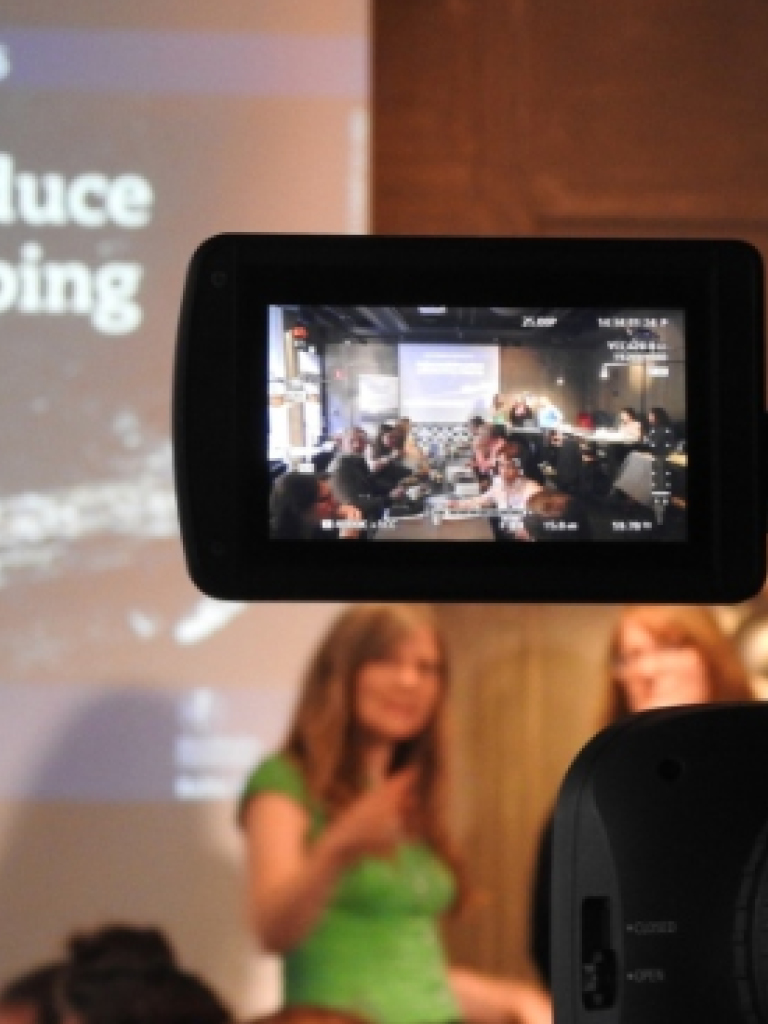
Seminar series – Baltic Breakfast
This live streamed breakfast seminar series, organized by the Stockholm University Baltic Sea Centre, presents the latest knowledge about issues of central importance to the Baltic Sea environment. The event is addressed to guests in different sectors working with sustainable development in the Baltic Sea region
Subscribe to breakfast invites via our newsletter.

Policy relevant marine science news – web magazine Baltic Eye
What does it look like when scientists join a fisheries hearing in the EU Parliament? How is marine monitoring performed, and why is it the core of our knowledge of the environmental state of the sea? Our magazine presents marine research news of societal relevance.
Visit Baltic Eye and subscribe to our monthly newsletter.
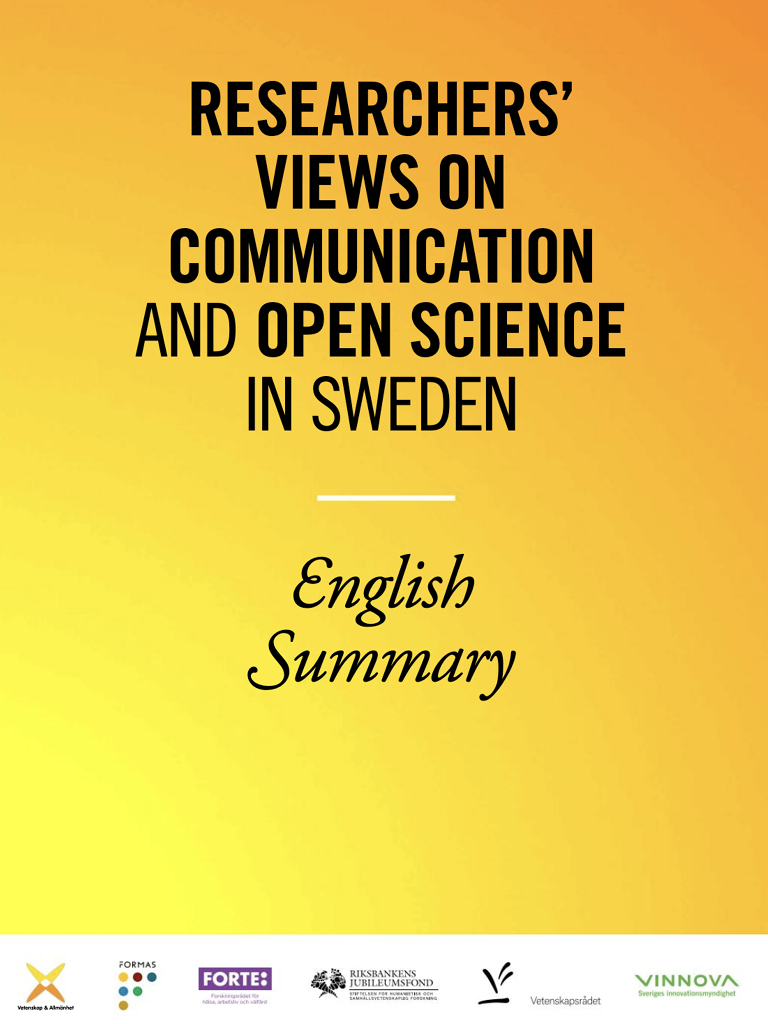
Researchers’ views on communication and open science in Sweden – a summary
Sweden’s researchers want to communicate more with the outside world but are hindered by both internal and external obstacles, according to a survey of 3,700 researchers at Swedish universities and colleges. The survey is the largest of its kind conducted to date in Sweden.
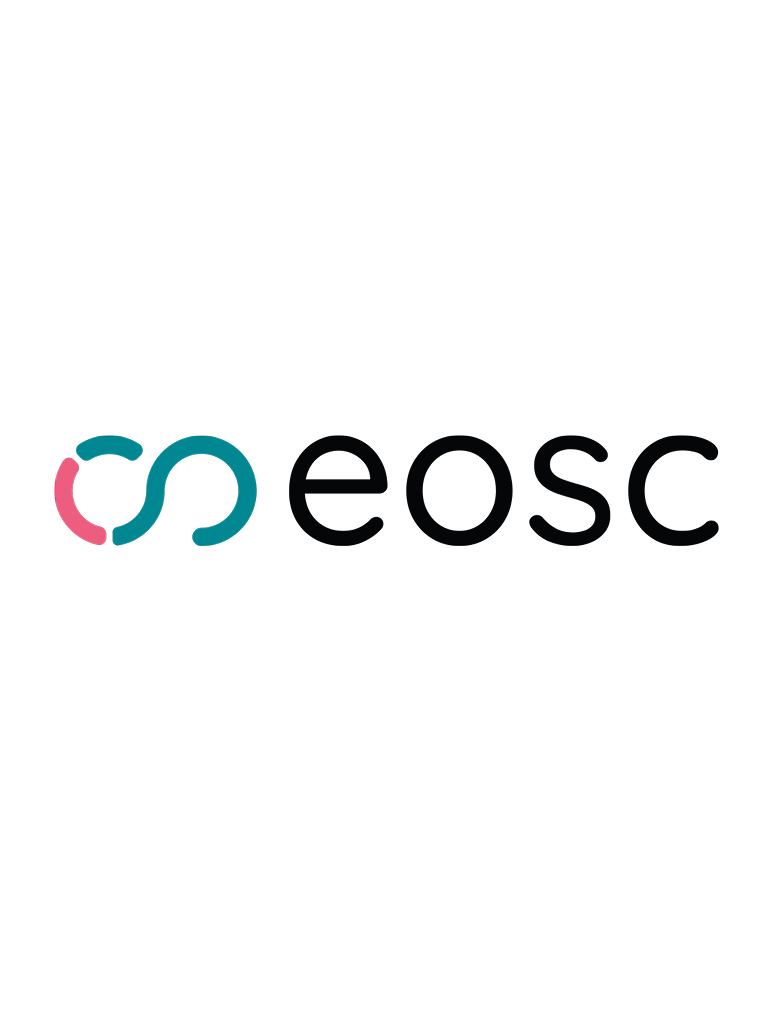
EOSC – Council Conclusions
Draft Council conclusions on high-quality, transparent, open, trustworthy
and equitable scholarly publishing.
The EOSC Association is the legal entity established to govern the European Open Science Cloud (EOSC).

Open science and open access at Stockholm University
Information about and examples of open science and open access at Stockholm University.
In English
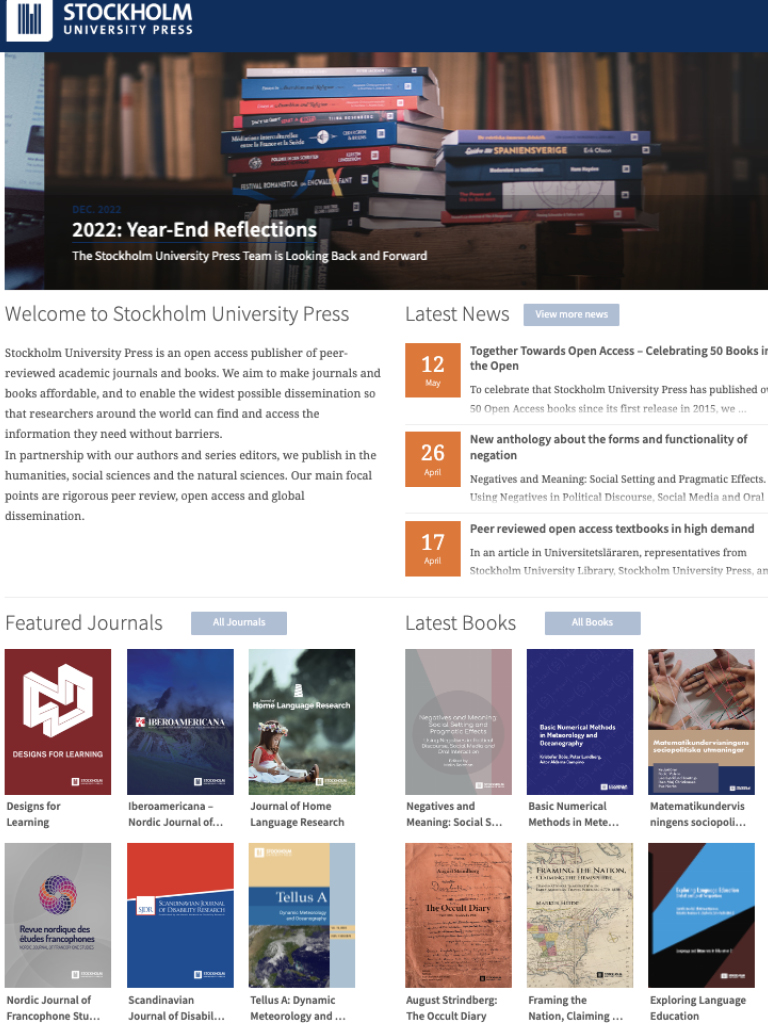
Stockholm University Press
Stockholm University Press is an open access publisher of peer-reviewed academic journals and books. We aim to make journals and books affordable, and to enable the widest possible dissemination so that researchers around the world can find and access the information they need without barriers.
In partnership with our authors and series editors, we publish in the humanities, social sciences and the natural sciences. Our main focal points are rigorous peer review, open access and global dissemination.
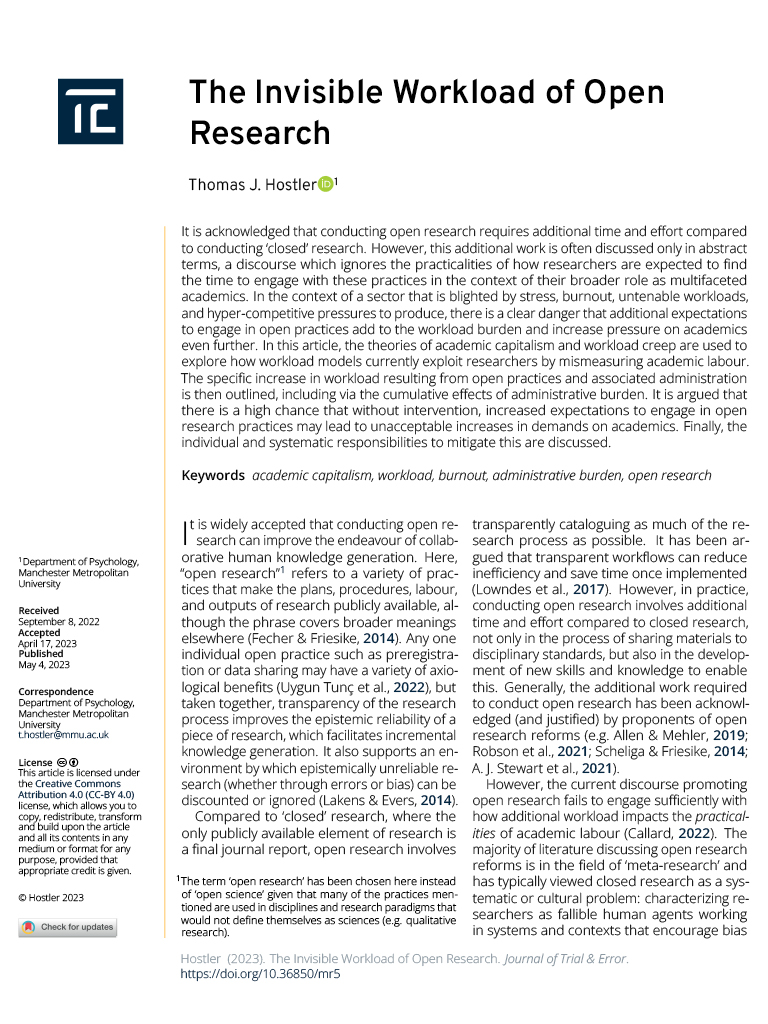
The Invisible Workload of Open Research
It is acknowledged that conducting open research requires additional time and effort compared to conducting ‘closed’ research. In this article, the theories of academic capitalism and workload creep are used to explore how workload models currently exploit researchers by mismeasuring academic labour.
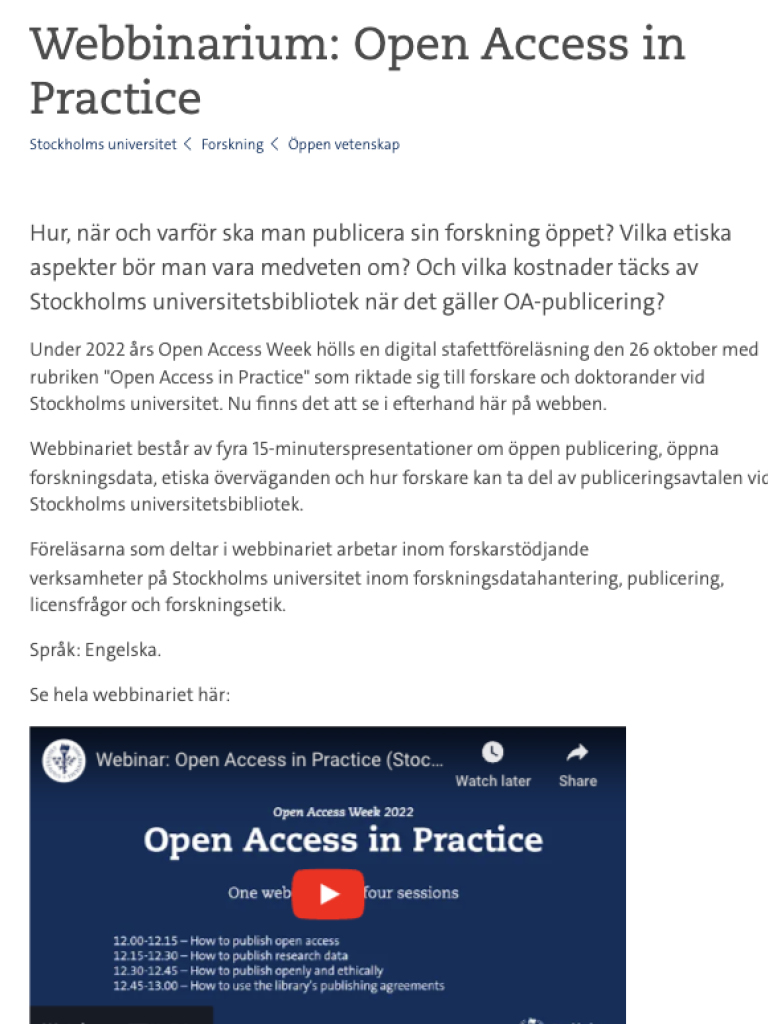
Webinar: Open Access in Practice
The webinar consists of four 15-minute presentations on open publishing, open research data, ethical considerations and how researchers can take part in the publication agreements at Stockholm University Library.
The lecturers participating in the webinar work in research support activities at Stockholm University in research data management, publishing, licensing issues and research ethics.
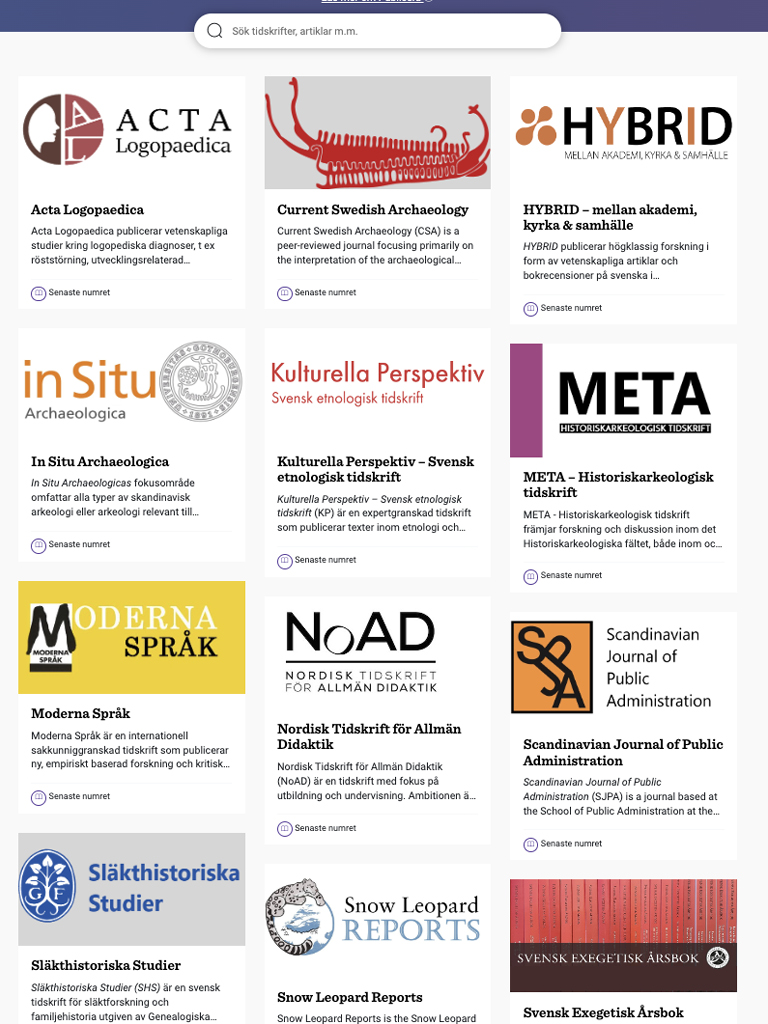
Publicera
Publicera is the national platform for publishing Swedish scholarly journals with immediate open access. This means that all content on Publicera is available to everyone, free of charge.
The goal of the platform is to help journal owners and editors transition to publishing with immediate open access.

Report on the national coordination of work for open access to scholarly publications
The National Library of Sweden (NLS) is tasked with promoting and coordinating the work for open access to scholarly publications. The goal is for all such publications to be available on the internet, free for everyone to read and reuse.
